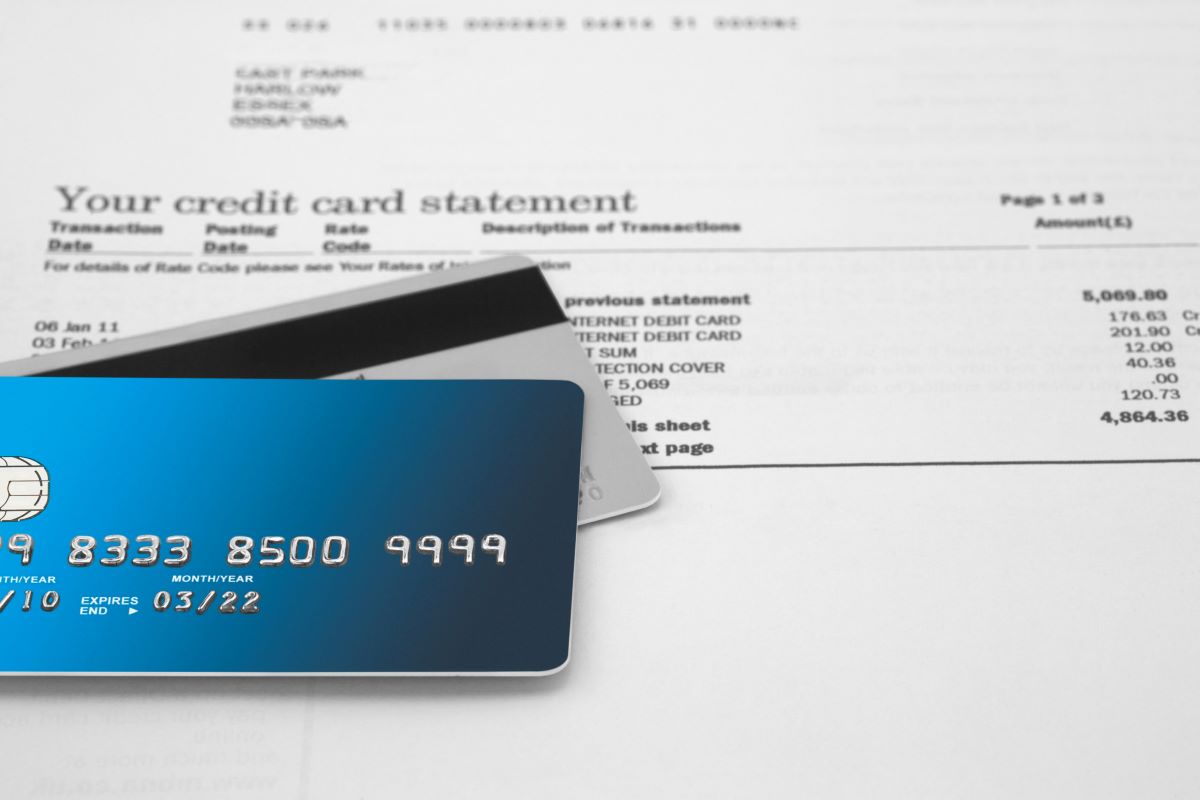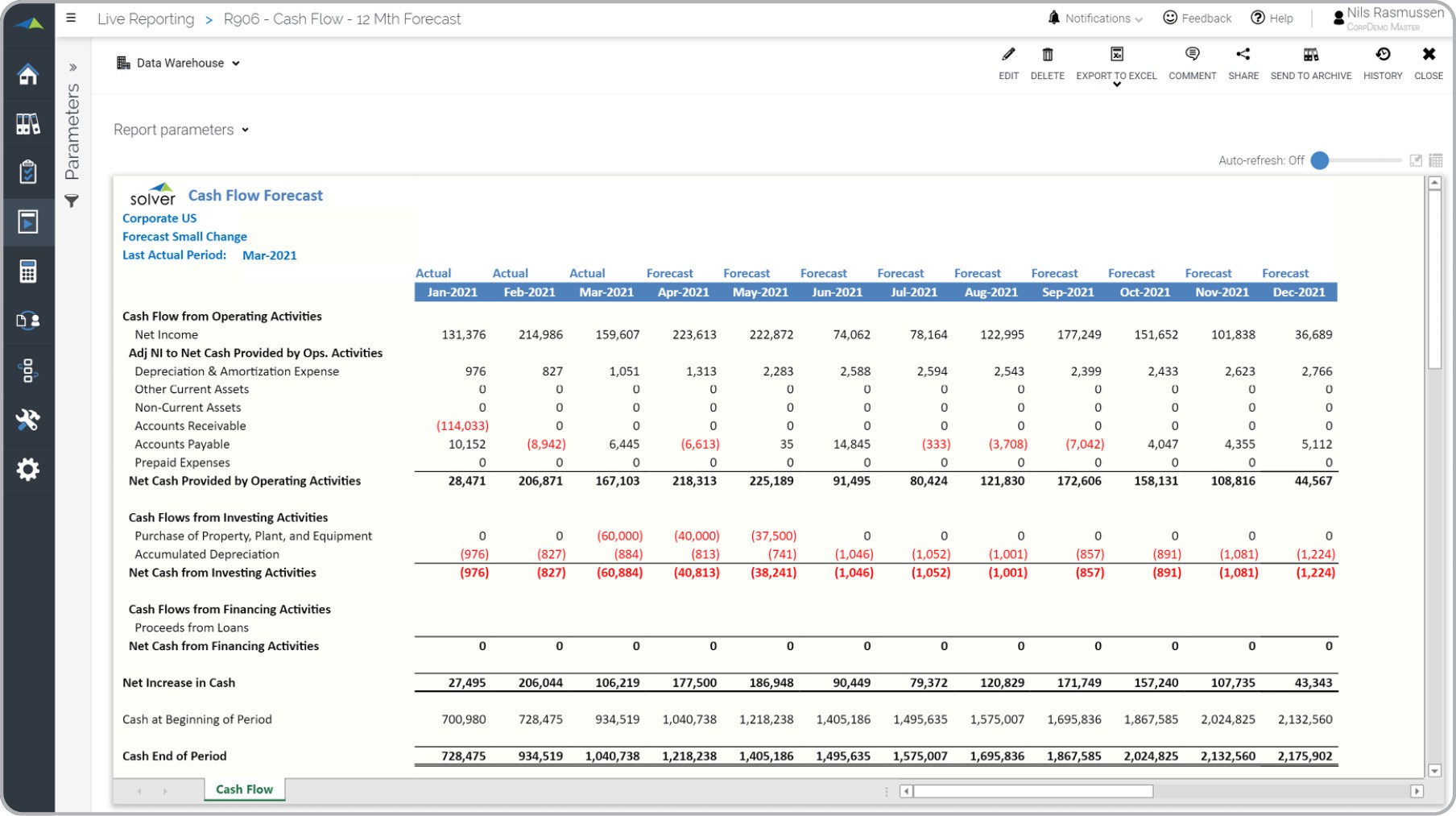

Finance
How Long Are Credit Card Transactions Pending
Modified: January 15, 2024
Learn how long credit card transactions remain pending and understand the finance behind it. Find out the duration and impact on your account.
(Many of the links in this article redirect to a specific reviewed product. Your purchase of these products through affiliate links helps to generate commission for LiveWell, at no extra cost. Learn more)
Table of Contents
Introduction
Have you ever swiped your credit card and wondered why the transaction takes some time to appear on your statement? It can be frustrating to have a pending transaction show up, especially when you need to keep track of your finances. Understanding why credit card transactions are pending and how long they typically take to clear can help alleviate some of this frustration.
When you use your credit card to make a purchase, the transaction goes through a series of stages before it is fully processed and reflected on your statement. During this time, the transaction is considered as “pending.” Pending transactions are transactions that have been authorized by the merchant but have not yet been settled and finalized by the financial institutions involved.
The duration of pending transactions can vary depending on various factors, such as the merchant’s processing policies and the type of transaction involved. In some cases, pending transactions may clear within a few hours, while in others, it may take several days.
Understanding the factors that affect the duration of pending transactions can help you manage your finances more efficiently and plan your budget accordingly. It is also important to know how long you can expect a pending transaction to remain in limbo before it is cleared and reflected on your credit card statement.
In this article, we will delve deeper into the world of pending credit card transactions. We will explore the factors that influence their duration, provide an average time frame for clearance, and offer tips on how to speed up the process. So, let’s dive in and unravel the mysteries of pending credit card transactions!
Understanding Pending Transactions
Pending transactions occur when a credit card transaction has been authorized by the merchant but has not yet been fully processed and reflected on your credit card statement. They are essentially temporary holds on your credit line, indicating that funds are being reserved for a specific purchase.
When you make a credit card purchase, the merchant sends a request to your credit card issuer to verify that you have sufficient funds or available credit to cover the transaction. Once the issuer confirms the availability of funds, they authorize the transaction, and a hold is placed on the corresponding amount.
During this pending period, the transaction is recorded in your credit card account as a pending transaction, but it is not yet posted to your statement. The purpose of this delay is to allow time for the merchant to process the transaction and for any potential returns or adjustments to be made.
It’s important to understand that pending transactions are not immediately deducted from your available credit or reflected in your outstanding balance. They only appear as pending charges and do not impact your credit utilization or payment obligations until they are fully processed and posted.
While most pending transactions eventually clear and appear on your statement, there are instances where they may be cancelled or rejected. This can occur if the merchant decides not to proceed with the transaction, if there is an error or discrepancy in the transaction details, or if the transaction exceeds your credit limit.
Additionally, it’s worth noting that pending transactions can sometimes differ in amount from the final posted transactions. This is particularly common in industries such as hospitality, where a hold is placed on an estimated amount (e.g., hotel charges, car rentals) and adjusted to reflect the actual transaction cost once it is finalized.
Overall, understanding the purpose and nature of pending transactions is essential to accurately manage your credit card finances. It allows you to anticipate potential deductions from your available credit and keep track of your spending, ensuring you stay within your budget and manage your finances effectively.
Factors Affecting the Duration of Pending Transactions
The duration of pending credit card transactions can vary based on several factors. Understanding these factors can give you insight into why some transactions clear quickly while others take longer. Here are the primary factors that can affect the duration of pending transactions:
- Merchant processing policies: Each merchant has its own policies on how quickly they process and settle credit card transactions. Some merchants may process transactions in real-time, while others may batch process them at specific intervals throughout the day. The merchant’s processing policy can influence how long a transaction remains pending.
- Type of transaction: The type of transaction can also impact the duration of the pending period. For example, online purchases typically involve more verification steps and may take longer to clear than in-person transactions. Transactions involving pre-authorization, such as hotel stays or car rentals, may have longer pending periods due to the need to hold a specific amount as a security deposit.
- Merchant location: If you make a purchase from a foreign merchant, it may take longer for the pending transaction to clear. This is because the transaction needs to go through international processing networks and may encounter additional verification steps and currency conversion processes.
- Weekends and holidays: Transactions made on weekends or holidays may have longer pending periods. This is because banks and financial institutions often have limited operating hours on non-business days, resulting in a delay in processing and settling transactions.
- Payment network: The payment network used for the transaction can also influence the duration of pending transactions. Certain payment networks may have faster processing times, resulting in quicker clearance of pending transactions.
It’s important to keep in mind that while these factors can impact the duration of pending transactions, the vast majority of transactions do eventually clear. However, if you notice a significantly delayed or unresolved pending transaction, it’s prudent to reach out to the merchant or your credit card issuer for assistance and clarification.
Understanding these factors can help set realistic expectations regarding when pending transactions are likely to clear. It can also help you identify any unusual delays or discrepancies and take appropriate action if necessary. Ultimately, being aware of these factors allows you to more effectively manage your credit card transactions and stay on top of your financial obligations.
Average Time for Credit Card Transactions to Clear
The average time for credit card transactions to clear and move from the pending status to being fully processed and reflected on your credit card statement can vary. While there is no definitive timeline that applies to all transactions, there are some general guidelines to keep in mind:
1. In-person transactions: In-person transactions, such as those made at a physical store or restaurant, typically clear more quickly. In many cases, these transactions will appear on your statement within a couple of days, often by the next business day. This is because the merchant can process the transaction immediately, and the authorization and settlement process is swift.
2. Online transactions: Online transactions, where the card is not physically present, often take a bit longer to clear. On average, it can take anywhere from 2 to 5 business days for online transactions to move from pending to fully processed. This additional time is necessary for the merchant to verify the transaction and for the payment processor to settle the funds.
3. Pre-authorization transactions: Transactions that involve pre-authorization, such as hotel reservations or car rentals, can have extended pending periods. While the initial pre-authorization hold may appear quickly on your statement, the final transaction amount may take several days or even weeks. This is because the merchant needs to reconcile the charges and adjust the hold amount to reflect the actual cost of the goods or services.
4. International transactions: If you make a purchase from a foreign merchant or during your travels abroad, it’s not uncommon for the pending transaction to take a bit longer to clear. International transactions often involve additional verification steps and currency conversion processes, which can result in a slightly longer pending period.
It’s important to note that these are general guidelines, and the actual time for transactions to clear can vary. Factors such as the merchant’s processing policies, the type of transaction, and the payment network used can influence the clearance time. Moreover, weekends and holidays can also cause delays in processing, resulting in slightly longer pending periods.
If you notice a transaction that has been pending for an unusually long time or if you have concerns about a specific purchase, it is advisable to reach out to your credit card issuer for clarification. They can provide more specific information about the pending status of the transaction and address any concerns you may have.
By having a general understanding of the average time it takes for credit card transactions to clear, you can better manage your finances, budget appropriately, and stay on top of your credit card obligations.
Ways to Speed Up Pending Transactions
While the duration of pending credit card transactions is largely out of your control, there are a few steps you can take to potentially speed up the process. Here are some ways to expedite the clearance of pending transactions:
- Communicate with the merchant: If you made a purchase and notice that the transaction is pending for an extended period, it can be helpful to reach out to the merchant. Confirm with them that the transaction was successfully processed on their end and inquire about the estimated time for it to clear on your statement. Sometimes, simply communicating with the merchant can help shed light on any delays or discrepancies.
- Keep track of transaction receipts: It’s a good practice to keep a record of your transaction receipts, both digitally and physically. This can help facilitate the resolution of any pending transaction issues should they arise. If you need to dispute a transaction or provide evidence of a purchase, having the receipt readily available can help streamline the process.
- Regularly monitor your credit card statements: Stay vigilant and review your credit card statements regularly. By staying on top of your transactions and promptly identifying any discrepancies or delays, you can address them in a timely manner. This proactive approach allows you to quickly follow up with your credit card issuer or the merchant to resolve any pending transaction issues.
- Use reputable merchants: Opt for well-established and reputable merchants when making online purchases. This reduces the likelihood of encountering delays or complications in the transaction process. Established merchants often have efficient systems in place for processing transactions, leading to quicker clearance of pending transactions.
- Consider alternative payment methods: If speed is crucial for your transaction, consider using alternative payment methods such as mobile payment apps or digital wallets. These methods often have faster transaction processing times and can result in quicker clearance of pending transactions compared to traditional credit card payments.
While these tips can potentially help expedite the clearance of pending transactions, it’s important to note that delays can still occur due to various factors outside of your control. If you encounter persistent issues or significant delays with pending transactions, it’s recommended to reach out to your credit card issuer for assistance and guidance.
By being proactive and keeping track of your transactions, you can minimize the impact of delayed pending transactions and stay in control of your credit card finances.
Tips for Managing Credit Card Transactions
Managing your credit card transactions effectively is crucial for maintaining good financial health and avoiding any potential issues or surprises. Here are some tips to help you manage your credit card transactions more efficiently:
- Create a budget: Set a monthly budget that includes your anticipated credit card expenses. This allows you to track your spending and ensures you don’t exceed your available credit or run into payment difficulties.
- Review statements regularly: Take the time to carefully review your credit card statements each month. Look for any unauthorized charges or errors and report them to your credit card issuer immediately.
- Keep track of pending transactions: Pay attention to pending transactions and factor them into your available credit and outstanding balance. This helps you have a more accurate picture of your current spending and available credit limit.
- Set up transaction alerts: Utilize the transaction alert features offered by your credit card issuer. These alerts can notify you of any pending transactions, unusual activity, or when your credit limit is nearing its threshold.
- Schedule automatic payments: Set up automatic payments for your credit card bills to ensure you never miss a payment and incur late fees. This helps maintain a positive payment history and keeps your credit in good standing. Just be sure to have sufficient funds in your bank account to cover the payments.
- Avoid unnecessary debt: Use your credit card responsibly and avoid unnecessary debt by only charging what you can afford to pay off in full each month. Accumulating high-interest credit card debt can quickly become burdensome and negatively impact your financial well-being.
- Be cautious with online transactions: When making online purchases, only provide your credit card information on secure and reputable websites. Avoid sharing your card details on unsecured platforms or responding to suspicious emails or messages.
- Keep your credit card information secure: Protect your credit card information by not sharing it with anyone and being cautious with where and how you use your card. Regularly monitor your statements and report any unauthorized charges immediately.
Following these tips can help you stay on top of your credit card transactions, avoid potential issues or fraudulent activity, and maintain a healthy credit standing. Remember, responsible credit card management is key to establishing good financial habits and maximizing the benefits of your credit card.
Conclusion
Understanding the ins and outs of pending credit card transactions is essential for effectively managing your finances and ensuring a smooth payment process. While pending transactions can sometimes cause confusion or frustration, knowing why they happen and how long they typically take to clear can alleviate some of these concerns.
In this article, we explored the concept of pending transactions and the various factors that can affect their duration. We learned that merchant processing policies, the type of transaction, merchant location, weekends and holidays, and the payment network used can all impact how long a transaction remains pending. By understanding these factors, you can better anticipate when a pending transaction is likely to clear on your credit card statement.
We also discussed the average time it takes for credit card transactions to clear, ranging from a couple of days for in-person transactions to slightly longer for online transactions and those involving pre-authorization or international merchants. Being aware of these average timelines enables you to manage your finances more effectively and plan your budget accordingly.
To speed up pending transactions, we provided some helpful tips, including communicating with the merchant, keeping track of receipts, regularly monitoring your credit card statements, using reputable merchants, and considering alternative payment methods for faster processing.
Additionally, we shared practical tips for managing credit card transactions, such as creating a budget, reviewing statements regularly, setting up transaction alerts, scheduling automatic payments, avoiding unnecessary debt, and being cautious with online transactions.
By following these guidelines, you can stay on top of your credit card transactions, detect any discrepancies or errors early on, and maintain control over your financial well-being.
In conclusion, while pending credit card transactions may momentarily add to the complexity of managing your finances, understanding their nature, timelines, and employing effective strategies can help streamline the process and empower you to make informed financial decisions.














